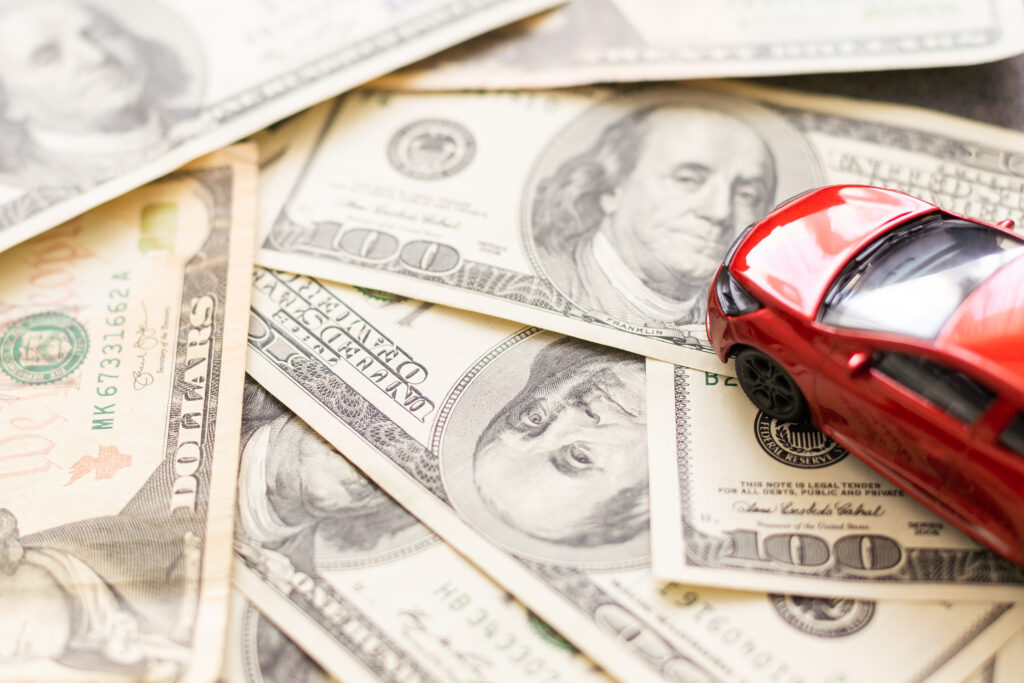
National General Total Loss – A Comprehensive Guide
If you’ve recently experienced a car accident and your vehicle has been declared a total loss, navigating the insurance claims process can feel overwhelming. National General Insurance offers a streamlined approach to handle total loss claims, ensuring that you’re fairly compensated for your vehicle. This comprehensive guide will walk you through everything you need to know about National General’s total loss payout policies and processes, and how to ensure you receive the maximum payout for your claim.
If you need immediate assistance, you can reach the National General total loss department at (800) 468-3466.
Want to Maximize Your Total Loss Claim Amount?
What is a Total Loss According to National General?
In the insurance world, a vehicle is declared a total loss when the cost to repair the damage exceeds a certain percentage of the car’s value before the accident. Most insurance companies, including National General, will declare a total loss if the repair costs exceed 70-80% of the vehicle’s actual cash value (ACV).
In such cases, National General will pay out the vehicle’s ACV minus any applicable deductibles and fees. It’s crucial to understand how the National General total loss department determines the value of your vehicle to ensure you receive the most accurate and fair settlement.
How National General Calculates Total Loss Payouts
National General uses a systematic approach to determine the total loss payout. This includes several key factors:
1. Actual Cash Value (ACV)
The ACV is the market value of your vehicle immediately before the accident occurred. National General determines this by taking into account the vehicle’s make, model, year, mileage, and condition, along with the local market conditions. Essentially, it’s the amount your car would have sold for in the open market before it was damaged.
2. Depreciation
Depreciation is factored into your vehicle’s ACV, which is why even if you purchased your car only a few years ago, its value may be significantly lower today. The older the car, the more depreciation will affect the payout.
3. Vehicle Modifications
Any custom upgrades or modifications to your vehicle may or may not increase the payout amount, depending on how they were documented at the time of insurance policy setup. If you’ve made valuable enhancements to your vehicle, it’s crucial to provide receipts or appraisals to National General’s total loss adjuster to potentially improve your payout.
4. Deductibles
Before receiving a payout, the amount of your insurance deductible will be subtracted from the total payout. It’s important to review your policy and understand how much your deductible will reduce your settlement.
5. Market Comparisons
National General may use third-party valuation tools like Kelley Blue Book or local market data to compare your vehicle’s value against similar models in the area. This data helps ensure their valuation is in line with market rates.
The National General Total Loss Process
If your vehicle is declared a total loss, the National General insurance total loss department will initiate the payout process. Here’s what you can expect:
1. Initial Assessment
Once you file your claim, an adjuster will be assigned to inspect your vehicle and determine whether it’s repairable or a total loss. This is typically done quickly, and National General aims to make this assessment within a few days.
2. Notification
If the vehicle is deemed a total loss, National General will notify you. They will provide an initial ACV estimate, which will serve as the basis for your total loss payout.
3. Settlement Offer
After calculating the vehicle’s value, National General will issue a settlement offer. This is the amount they believe your car was worth before the accident, minus any applicable deductibles and fees. You can choose to accept or negotiate this offer.
4. Negotiation (Optional)
If you believe that the National General total loss payout is lower than your vehicle’s actual worth, you have the right to challenge the offer. Be prepared to provide evidence, such as recent market data, appraisals, or receipts for vehicle upgrades.
5. Payout and Title Transfer
Once you accept the settlement, National General will provide the total loss payout. In exchange, you will need to sign over the vehicle’s title, and the vehicle will likely be salvaged or sold at auction.
Factors That Could Affect Your Total Loss Payout
- Gap Insurance: If you owe more on your vehicle than its ACV, gap insurance can help cover the difference. It’s essential to check whether your National General policy includes gap coverage if you’re still making payments on a loan or lease.
- Salvage Value: In some cases, you may have the option to retain the salvage value of your vehicle. This means that instead of giving up your vehicle, you keep the damaged car and National General reduces the payout by the salvage value.
- Aftermarket Parts and Customizations: If you’ve added custom parts or aftermarket modifications to your vehicle, you may not automatically receive compensation for those improvements. Documenting these enhancements and discussing them with your adjuster can help increase your payout.
Can You Negotiate a Total Loss Payout?
Yes, you can negotiate the total loss payout with National General. If you believe the initial offer does not reflect the true value of your vehicle, you have the right to dispute the amount. This process usually involves providing additional documentation, such as evidence of comparable vehicle values, repair records, or details of any recent improvements to your car.
National General’s adjusters may reconsider their offer based on this evidence. While the negotiation process can take some time, it’s worth pursuing if you feel the initial offer is too low.
How Auto Claim Consultants Can Help
Dealing with the intricacies of a total loss claim can be overwhelming. At Auto Claim Consultants, we specialize in helping individuals achieve the highest possible payout for their National General total loss and diminished value claims.
As independent auto appraisers with extensive experience working with National General total loss adjusters, we know exactly how to evaluate your vehicle for maximum compensation. Our services include reviewing National General’s settlement offers, providing independent vehicle appraisals, and helping clients negotiate higher payouts when the initial offer doesn’t reflect the true value of their vehicle.
Whether you’re dealing with a complicated total loss situation or want a second opinion on the National General total loss payout offer, Auto Claim Consultants is here to help.

Maximize Your Total Loss Payout With Auto Claim Consultants
Navigating the National General total loss process can be challenging, but with the right information and guidance, you can ensure that you receive a fair and accurate settlement. Understanding how National General determines your vehicle’s value, how the payout process works, and your rights to negotiate are crucial in getting the best result.
If you’ve totaled your vehicle and need assistance with your National General total loss claim, don’t hesitate to contact us at Auto Claim Consultants. Our team of independent appraisers is dedicated to helping you maximize your payout and ensure that you’re compensated fairly. Reach out today to learn more about how we can help, or to get started on your total loss or diminished value claim.
FAQs
How long does it take National General to settle a claim?
The time it takes to settle a claim with National General can vary, but most total loss claims are typically processed within a few weeks. This timeframe includes the initial inspection, valuation, and payout process.
How do I claim reimbursement from National General Insurance?
To claim reimbursement, you need to file a claim with National General by providing details about the incident, necessary documentation, and receipts for covered expenses. You can start the process by contacting their claims department or filing online.
Is the total loss amount negotiable?
Yes, the total loss payout is negotiable if you believe the offered amount does not accurately reflect your vehicle’s value. You can provide supporting evidence such as market comparisons, receipts, or independent appraisals to challenge the offer.
Does a total loss affect credit?
A total loss does not directly affect your credit score, but issues like missed car payments or unpaid loans on the totaled vehicle can impact your credit. Ensuring that any remaining loan balance is settled, especially if you owe more than the vehicle’s value, is crucial to maintaining good credit.
